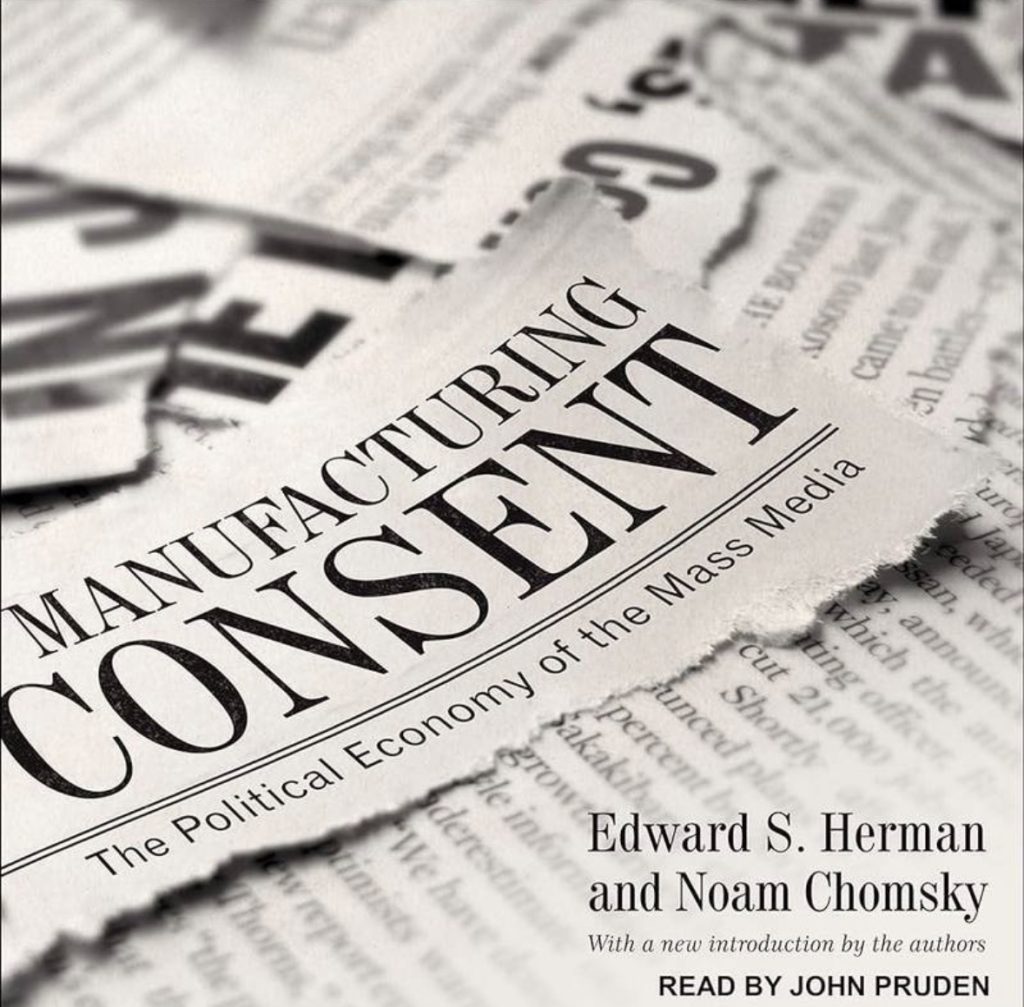
In todayŌĆÖs world, media plays a huge role in shaping what we think and believe. But is it really giving us the full, unbiased picture? The book Manufacturing Consent: The Political Economy of the Mass Media by Noam Chomsky and Edward S. Herman challenges this idea.
What is ŌĆ£Manufacturing ConsentŌĆØ?
The theory says that media isnŌĆÖt just a neutral watchdog. Instead, itŌĆÖs often controlled by powerful people and groups to create a certain way of thinking among the public. This helps those in power stay in controlŌĆŗ.
The Propaganda Model
Chomsky and Herman came up with a model to explain how this worksŌĆŗ. Big media companies are mostly interested in making money, not telling the whole truth. They rely on ads, which means they have to please big advertisers. They also get most of their information from powerful sources like the government. If they report something those sources donŌĆÖt like, they might face pressure to change the story.
Media Concentration
A few huge companies control most of the media. This means they can decide what we see and hear. They often choose stories that support their own interests and avoid ones that might challenge themŌĆŗ.
Think Critically
The key takeaway is to always question what you see in the media. Look for different sources and support independent news. This way, you can form your own opinions instead of just accepting what big media wants you to believeŌĆŗ.
In short, understanding ŌĆ£Manufacturing ConsentŌĆØ helps us see that media isnŌĆÖt always neutral. It can be used to shape our views. By staying aware and thinking critically, we can make smarter decisions about what we believeŌĆŗ.


Your post gives a very clear and accessible explanation of Herman and ChomskyŌĆÖs idea of manufacturing consent. I really like how you break down the Propaganda Model into simple points that are easy to understand while still keeping the academic meaning. The section about media concentration is especially strong because it connects the theory to real problems today. Overall, your writing shows good understanding of media power and encourages critical thinking in a very effective way.
This is a great explanation of manufactured consent and how it impacts us in our daily lives. I think some examples of non-neutral media sources can be seen in American political spheres, with sources like CNN and FOX News standing on opposite sides of many issues and painting completely different pictures of the same nation. I agree that it’s important to take in media with a questioning mindset and to consume media from a variety of sources and perspectives.